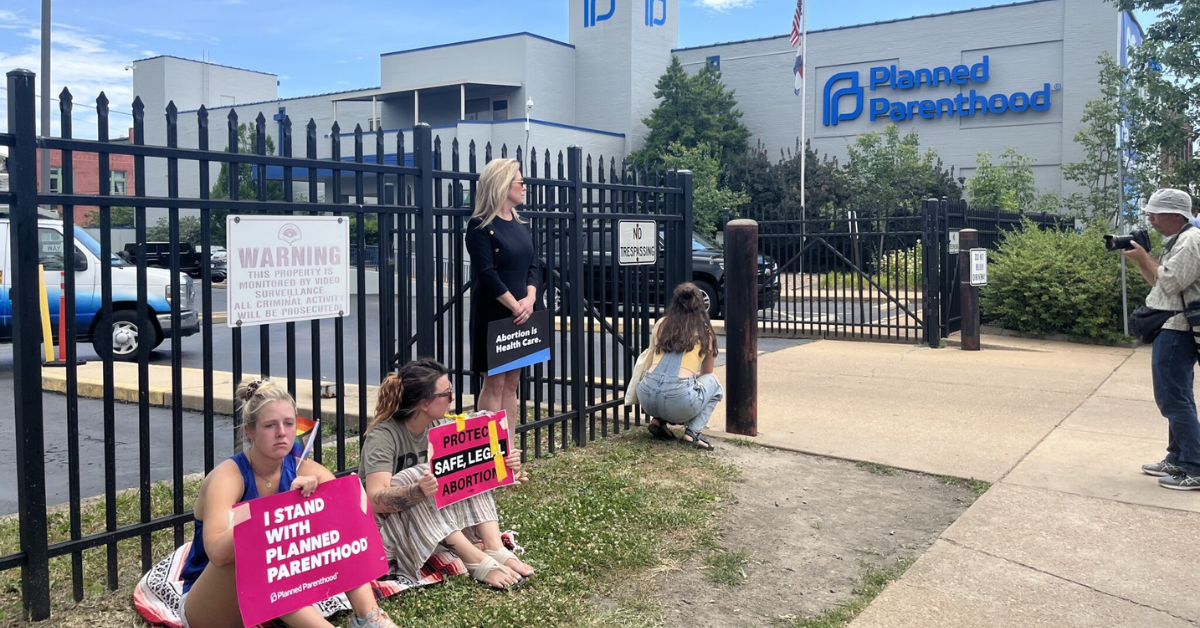People seeking abortions in Missouri continue to face challenges despite the state’s voters approving a constitutional amendment to protect abortion rights in November. The restriction remains due to a licensing requirement that applies to abortion facilities across the state, making it difficult for providers to resume services.
Planned Parenthood representatives have stated they cannot offer abortion services until this licensing requirement is lifted. Other state laws, including Missouri’s near-total abortion ban, are currently on hold, but the licensing rule is still enforced.
On Friday, attorneys for Planned Parenthood asked Jackson County Circuit Court Judge Jerri Zhang to reconsider her December ruling, which upheld the licensing requirement. Eleanor Spottswood, arguing for Planned Parenthood, stated that the regulations unfairly discriminate against abortion providers and patients. She emphasized that these rules interfere with reproductive rights and limit where and how patients can receive care.
Spottswood pointed out that no other single oral medication requires a facility to obtain a specific license. She also argued that no other medical procedure, including those that are riskier than abortion, is subjected to such strict licensing.
Missouri law mandates that any health center or doctor’s office providing abortion services must obtain a special license from the Missouri Department of Health and Social Services. Since Republican Gov. Mike Kehoe took office earlier this month, the department falls under his administration. The licensing process includes strict regulations on building setups and other medical requirements that Planned Parenthood clinics do not meet.
Additionally, the licensing rules dictate specific medical exams that must be performed before an abortion, such as pelvic exams for all patients, even those seeking a medication abortion. Planned Parenthood argues that these exams are unnecessary and intrusive. The rules also require various pregnancy confirmation tests performed by specially trained technicians, further complicating access to care.
In her December ruling, Judge Zhang stated that the licensing requirement applies to facilities rather than individuals seeking abortion care. She suggested that the government may have a legitimate interest in requiring these licenses for clinics.

After the ruling, Planned Parenthood attorneys filed a motion asking Zhang to reconsider, arguing that the requirement unfairly targets abortion providers. Under Amendment 3, both patients and providers are protected from being treated differently than others in the medical field. Planned Parenthood claims the court did not address this issue in its initial decision.
Other medical providers in Missouri are not subjected to the same licensing requirements. Doctors’ offices across the state can perform vasectomies, cataract removals, liposuction, and colonoscopies without obtaining the same special license, as long as these procedures make up less than half of their medical services.
Even miscarriage care using the same medication as a medication abortion does not require a special license if it makes up less than half of a provider’s services. This discrepancy highlights how the licensing rules appear to be specifically designed to restrict abortion access.
Missouri Solicitor General Josh Divine rejected Planned Parenthood’s argument, stating that the organization could apply for waivers from these licensing rules. He noted that the Missouri Department of Health and Social Services has previously granted waivers, but Planned Parenthood has not requested any.
Spottswood countered that obtaining waivers is an extensive and difficult process. She also raised concerns about the requirement for pelvic exams, stating that they have no medical relevance to a medication abortion. She explained that some patients may not consent to such exams due to past trauma, and many doctors refuse to perform them because they go against their ethical standards.
This situation effectively creates a ban on abortion services, even if clinics technically have the required license. Divine, however, argued that pelvic exams are a routine part of prenatal care and should not be considered unusual or inappropriate.
Judge Zhang did not make an immediate ruling on Friday. She is awaiting additional documents before making a written decision. In her December ruling, it took more than two weeks after the hearing before she issued her order. Advocates on both sides are now waiting to see how the court will decide on this contentious issue.
Disclaimer: This article has been meticulously fact-checked by our team to ensure accuracy and uphold transparency. We strive to deliver trustworthy and dependable content to our readers.

